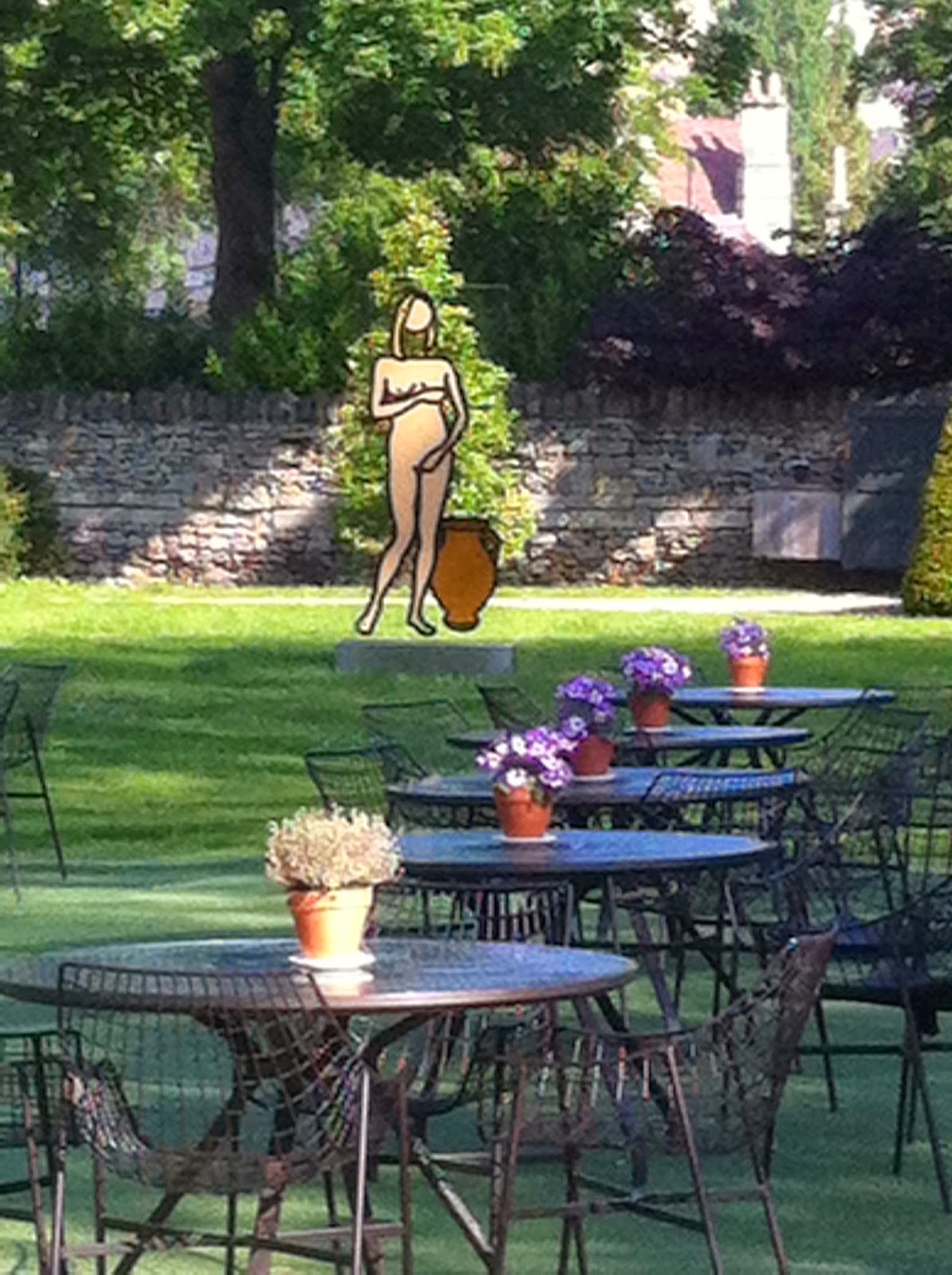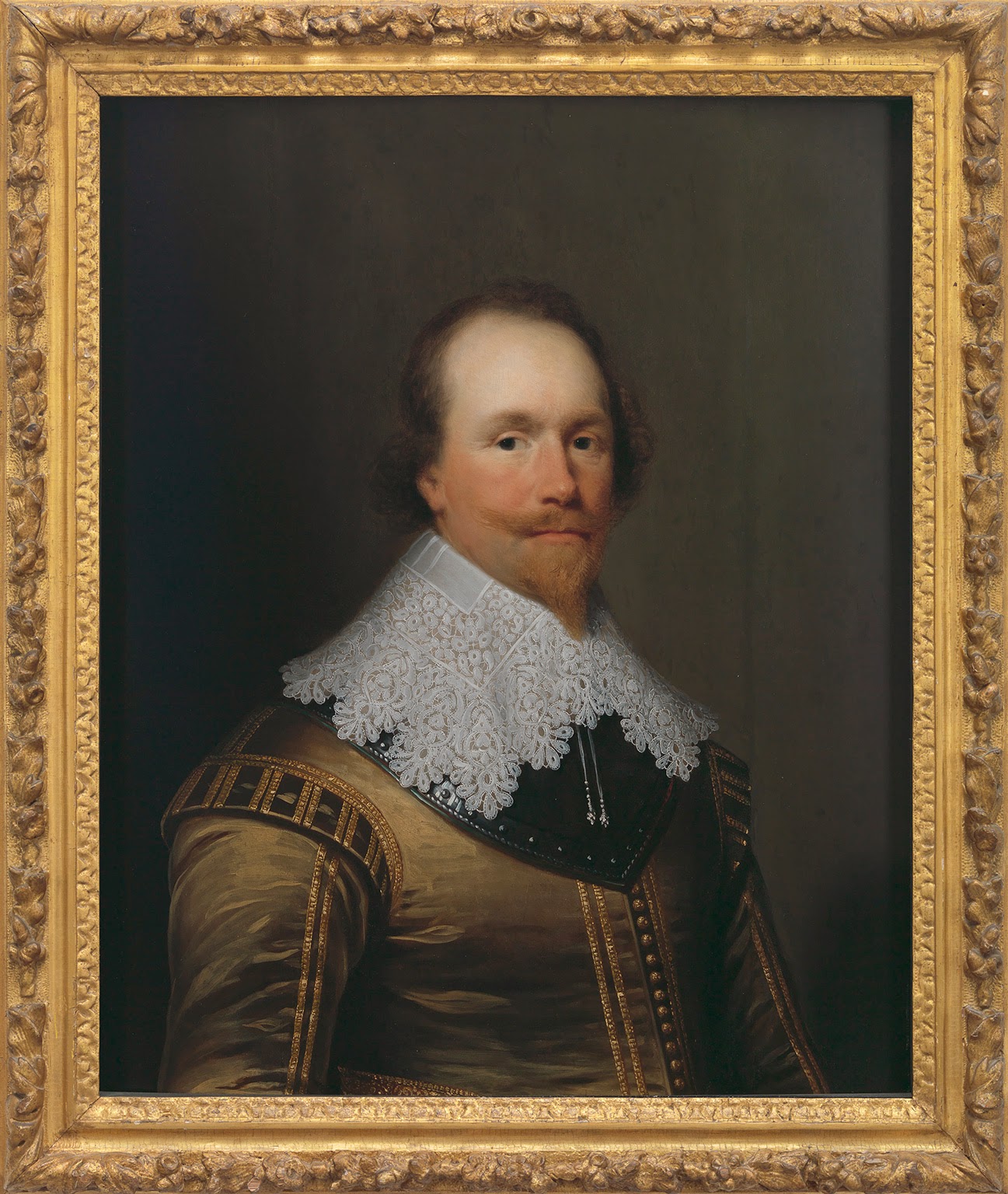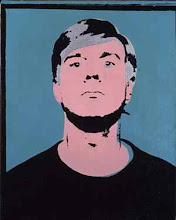 |
| Robyn Denny, Baby is Three, 1960 |
Robyn Denny was a significant figure in the development of
post-war British abstract painting. In David Mellor’s judgement, “For eight
years between 1961 and 1969, Robyn Denny painted what are arguably some of the
most accomplished abstract paintings made in Britain in the twentieth century.”
He is best known for his geometric abstractions of the 1960s and 70s. In 1973
he was the youngest artist to be given a retrospective at the Tate. His
dedication to abstraction, however, meant that he became increasingly
unfashionable and, together with contemporaries such as Richard Smith, all but
disappeared from public view. (In an interview, entitled ‘The Invisible Man’,
Richard Smith recalled: "Robyn Denny keeps saying, 'Our time will come,
Dick. Our time will come.' And he's been saying this for years and
years.")
As a student in the 1950s (St Martin’s, 1951-4, RCA,
1954-7), Denny belonged to the first generation to be influenced by the
American Abstract Expressionists, principally through exhibitions at the Tate
(1956 and 59), and shows by Pollock (1958) and Rothko (1961) at the Whitechapel.
Denny’s early work was characterised by gestural painting
and typographical abstraction. The apotheosis of the latter was a mural
commissioned for Austin Reed (‘great, big, wide, biggest’) in 1959.
In 1960 Denny was a key player in the organisation of
‘Situation’, an exhibition which responded directly to the scale and innovation
of the American painters. The criteria for inclusion in ‘Situation’ were that
paintings should be ‘abstract (that is, without explicit reference to events
outside the painting) … and not less than 30 square feet.’ All accounts report
that the exhibition was poorly attended, but the label recurred in ‘New London
Situation’ at the Marlborough Gallery in 1961 and in an Arts Council
exhibition, ‘Situation: an exhibition of recent British abstract art’ in 1962.
The paintings of the 60s were typically, large-scale
paintings featuring geometrical forms, suggestive of doorways, with flat planes
of colour in precisely adjusted, usually, muted colours. Later work changed the
emphasis from vertical to horizontal and included areas of brilliant colour. In
1981 Denny moved to Los Angeles and made paintings which were typically
monochromes out of which outcrops of scratched, coloured marks would emerge.
Read obituaries by Jeff Amos and in The Telegraph.
 |
| Robyn Denny, Home from Home, 1959 |
 |
| Robyn Denny, Austin Reed mural, 1959 |
 |
| Robyn Denny, Track 4, 1961 |
 |
| Robyn Denny, Out-Line, 1962 |
 |
| Robyn Denny,Life Line, 1963 |
,+1971.jpg) |
| Robyn Denny, Glass 2 From There, 1971 |
 |
| Robyn Denny, Head On 2, 1975 |
 |
| Robyn Denny, Windward Steam and Angel Dust, 1984 -87 |
Appendix: some images associated with Denny
 |
| Gordon House, catalogue cover design for 'Situation', 1962 |
 |
| Sylvia Sleigh, Portrait of the Situation
Group, 1961. L to R, back row: Henry Mundy, Gwyther Irwin,
William Turnbull, Peter Coviello; centre row: Gillian Ayres, John Plumb, Peter
Stroud, Robyn Denny, Roger Coleman, Bernard Cohen; front row: Gordon House,
Lawrence Alloway |
 |
| Howard Hodgkin, Mr & Mrs Robyn Denny, 1960 |






,+1971.jpg)




























